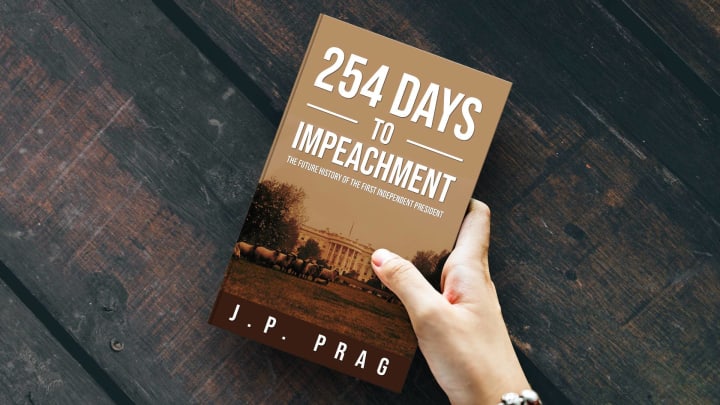
January 20th (Cape Alava, WA) – Manifest Destiny.
These two words elicit a strong response in the American psyche. Depending upon the person, this may bring feelings of exceptionalism; that the United States had—perhaps through divine providence—a mission to spread democratic ideals from the Atlantic Ocean to the Pacific, and to keep European empires out of these lands. For those people already living in the path of the expansionists, it was seen as a racist landgrab that displaced and killed millions, paving the way for a uniquely American territorial empire that denied freedoms to most and is still in existence today.
The term “Manifest Destiny” became a part of the public zeitgeist in late 1845 in response to a newspaper piece by John O’Sullivan. While it is debatable whether Mr. O’Sullivan coined the term himself, his zeal for its general sentiment caught the attention of the Whig Party, who derided the very idea. In an ironic backlash, this actually gave the previously little-heard phrase an enormous boost of attention and helped solidify the belief into a national movement.
Throughout the 19th century, the creed was used to further push Native Americans off of dwindling parcels, to attack neighboring countries, and to try to drive European powers out of the western hemisphere. Eventually, when the United States finally did reach from coast-to-coast and the time of “Manifest Destiny” was seemingly at an end, the themes it brought gave rise to the policies of hard territorial and soft diplomatic control far beyond the shores of the North American continent. This continued all the way through 1947 when the United States added the Northern Mariana Islands and Guam as the last two territories. This, coupled with the independence of the Philippines the year before signaled the end of America’s direct territorial gains, even though the people of those territories still have limited rights under the Constitution. While America stopped directly adding territories, it instead worked to expand its sphere of influence all around the globe through both diplomatic and military channels—with a particular emphasis on the Middle East and Southeast Asia, and especially anywhere bordering communist-nations like Russia and China.
The freshly installed President would address the issues with the territories and its people in a separate Executive Order given during the Inauguration Ceremony. However, before doing that, the President presented a new vision for “Manifest Destiny” in this seventh-of-ten surprise proclamations.
For context, in the previous two Executive Orders the President had assumingly backed away from internationalism by orchestrating the utter destruction of the United Nations and ordering American troops to leave foreign lands. But here is where the President turned the tables and made an ultimatum that even the United States’ closest allies are calling an unabashed attempt at creating a new world order—only one firmly under the thumb of a United States that would be answerable to no other body. Said the President:
Now, before I said that if a country wants to have our troops stationed there, the real simple answer was for Congress to pass specific language to make it so. But that is not entirely true. There is another way: become a part of the United States!
The President then went on to explain that the American military is already stationed in far-flung territories like the aforementioned latest additions, along with others like American Samoa. In a more salient point, the President highlighted that one of the largest military installations in the world—Joint Base Pearl Harbor-Hickam—is in the former territory turned State of Hawai’i. With this example, the President went on to press the case:
If you want the protections, freedoms, and other benefits of the United States, then the best thing you can do is be part of the United States. Today I am announcing a new Manifest Destiny. This one will not be built on forced territorial expansion, not on purchasing ill-gotten lands from other countries, not on war, and certainly not on controlling far-flung people for the sole benefit of those back on the mainland.
During this overview, the President referred back to the prior Executive Orders, again noting that the United States would no longer be the “world police”. Instead, an image was presented of the United States protecting its own and helping through spreading American resources, technology, power, and democratic ideals via expansion and merger. For more industrialized countries, this could be a direct path to statehood. For those in the developing world, this could be a plan to come in via treaty as a territory, and that treaty would also include a blueprint to modernize the formerly independent country, invest heavily in its infrastructure, and make sure they have all the opportunities of the existing States. These treaties, the President suggested, would include specific timelines and milestones for a territory to become a State. This way, they would not be “stuck in the quagmire we have created with our current territories, a situation I will soon address and correct.”
See our live coverage on our homepage to learn about this breaking story.
Here it should be noted that by the Constitution (Article 4 § Section 3 § Clause 1), only Congress can admit new States into the Union. On top of that, according to another section (Article 2 § Section 2 § Clause 2), all treaties must be agreed to by ⅔rds of the Senate. Finally, Congress controls appropriations and spending in general (Article 1 § Section 9 § Clause 7). The President, though, appears to be counting on this and has asked in the Executive Order for members of Congress from both chambers and all Political Parties to be involved in negotiations, should the opportunity arise.
Yet that opportunity appears to be the biggest question mark of all. Of course, the President cannot order any member of the Legislative Branch to do an action against their will, but they will most likely want to be involved. The real question remains: which other nations would possibly want to peacefully surrender themselves to the United States federal government?
Our nearest neighbors are already not a good fit. Canada to the north in many ways defines itself by how it differs from the United States. Also, within Canada there is a constant battle with secessionists who already do not want to be part of the nation they are in, most notably those in the French-speaking province of Quebec. Going further north one finds Greenland, which is part of the Kingdom of Denmark. Former President Donald Trump attempted to buy Greenland from Denmark, ostensibly for the rare-earth elements located there. Not only was he rebuffed, but the local government in Greenland passed laws to make the mining techniques necessary to extract those elements illegal, thus even limiting America’s ability to work with them as a partner. Since the new President specifically mentioned not buying land, Greenland is out as well.
To the south is Mexico, which despite long being integrated in economic relationships, has struggled with gaining parity on the freedom of movement between borders for its citizens. A large portion of the population in the United States looks at Mexicans and their descendants as interlopers and it is doubtful there would be enough agreement in Congress to allow such a potential influx. During the original Manifest Destiny, there was a movement to incorporate all of Mexico, not just Texas, California, and the rest of the Mexican Cession that included most of the modern southwestern United States. However, former Vice President and Senator John C. Calhoun (D-SC)—who was heavily involved in making sure Texas would be annexed and become a State—forcefully spoke on the Senate floor against adding the rest of Mexico, stating in part:
We have never dreamt of incorporating into our Union any but the Caucasian race—the free white race. To incorporate Mexico, would be the very first instance of the kind, of incorporating an Indian race; for more than half of the Mexicans are Indians, and the other is composed chiefly of mixed tribes. I protest against such a union as that!
While most would not dare say such an overtly racist statement out loud in the Capitol Building today—in any case, not in a place where they may be recorded—that does not mean the same sentiment does not exist among similarly-minded Congresspeople, or at least among enough of their constituents that they depend upon to maintain their jobs and power. As such, it is highly unlikely any country where the majority of the citizenry are Hispanic, people of color, or any other current minority in the United States will be able to pass through the auspices of Congress, even should they be interested. That would seemingly wipe out any opportunity for the entire continent of Africa and the island-nations of the Caribbean, although given the history of slavery in America, the vast majority of those nations would most likely prefer to keep their distance anyway.
These same Congresspeople may also fear the state of the economy in places like this and throughout much of Central and South America—a situation perpetuated by a disadvantageous colonial past—and how much it would cost to bring them up to the standards of even the worst-off States in America proper. Billions of dollars have been invested in Puerto Rico to no avail, and Congress may fear a similar situation.
Members of the Republican and Democratic Parties might also have concerns about the overall impact on Congress caused by adding these nations. Each future territory that rises to the level of a State will add two legislators to the Senate and will require reallocating the 435 seats in the House of Representatives—or creating legislation to adjust the number of seats and still needing to make some type of adjustment. Either situation will set off another round of redistricting, potential political gerrymandering, and the inevitable lawsuits as a consequence of those attempts; all of which were seen following the release of the most recent Census results that kicked off a similar process. Depending upon the political lean of the incoming country and the fallout it causes, both Republicans and Democrats may dread the possibility of adding more of the “other kind” to their chambers.
In places requiring less investment, the question becomes what could they possibly gain from joining the United States? Eastern Atlantic nations are for the most part already in the European Union or aspire to be in it. The European Union may also be arguably stronger than the United States in totality, at least from an economic and standard-of-living perspective. Those nations that are currently not in the European Union and are not attempting to join seem to prefer to be on their own, including the United Kingdom which left the E.U. in 2020 in what was known as “Brexit”. Nations similar to Europe like Australia and New Zealand also have systems in place that make them more independent. Other close allies in the Asian-Pacific region like Japan and India have little reason to join up, too, and have cultural differences that may make them, if not incompatible, perhaps uncomfortable being under American patronage.
The countries that are most impacted by the President’s withdrawal of U.S. forces are across the Middle East. But each of these nations like Jordan, Baharian, and Kuwait are usually some form of semi-Constitutional monarchy; and monarchies of any kind are incompatible with the United States Constitution. And this does not even take into consideration that all of these places have State-sponsored religions, a clear violation of the First Amendment. Even a democracy like Israel with on paper comparable equal rights, culture, and economy and that is already deeply entangled with American politics has a system where religion plays an outsized role. To maintain their Zionist national character, Israel would have no interest nor ability to join up.
All this really leaves, then, are small island nations that are already dependent upon foreign aid and protection, many of which are sinking into the ocean as sea levels rise due to global climate change. If anything, this would be more of a fast-track for a refugee program, a risk that would be a nearly impossible sell to Congress.
So, who then will be the first to join the United States in this new Manifest Destiny? The simple answer is this...
Most likely no one.

The above piece is an excerpt from the speculative fiction novel 254 Days to Impeachment: The Future History of the First Independent President by J.P. Prag, available at booksellers worldwide.

Learn more about author J.P. Prag at www.jpprag.com.

254 Days to Impeachment is a work of mixed fiction and nonfiction elements. With the fiction elements, any names, characters, places, events, and incidents that bear any resemblance to reality is purely coincidental. For the nonfiction elements, no names have been changed, no characters invented, no events fabricated except for hypothetical situations.
About the Creator
J.P. Prag
J.P. Prag is the author of "Aestas ¤ The Yellow Balloon", "Compendium of Humanity's End", "254 Days to Impeachment", "Always Divided, Never United", "New & Improved: The United States of America", and more! Learn more at www.jpprag.com.






Comments
There are no comments for this story
Be the first to respond and start the conversation.